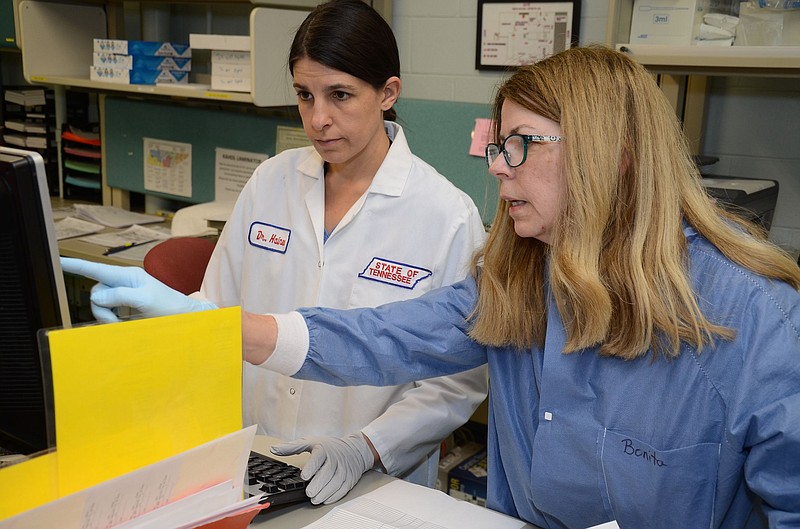AVIAN FLU FACTS
Avian influenza is caused by an influenza type A virus which can infect poultry like chickens, turkeys, pheasants, quail, domestic ducks, geese and guinea fowl, and is carried by free-flying waterfowl such as ducks, geese and shorebirds.Source: U.S. Department of Agriculture
BIOSECURITY MEASURES
• Isolate poultry from other animals• Wear clothing designated for use only at the poultry house• Minimize access to people and unsanitized equipment• Keep the area around the poultry buildings clean and uninviting to wild birds and animals• Sanitize the facility between flocks• Clean equipment entering and leaving the farm• Maintain an all-in, all-out policy regarding the placement and removal of the poultry• Properly dispose of bedding material and dead birds• Avoid contact with migratory waterfowlSource: Alabama State Veterinarian Dr. Tony Frazier

The U.S. Department of Agriculture on Thursday confirmed the presence of the H7N9 avian influenza virus in a guinea fowl found at a Scottsboro, Ala., flea market.
According to the USDA, the sample taken March 12 from the suspected Scottsboro bird was positive for a "low pathogenic" avian influenza strain, while officials said the strain confirmed at the Tennessee chicken operation was "highly pathogenic" avian influenza. Neither strain poses a risk to the food supply and no affected animals entered the food chain, officials said.
The risk to humans is low.
A "stop movement" order issued Tuesday in Alabama aims to keep chickens from exposing other animals to the virus and keep it from spreading. The virus here is not the same as the China H7N9 virus affecting Asia that has impacted poultry and humans there and is genetically distinct, officials said.
The Tennessee state veterinarian confirmed the highly pathogenic strain Thursday found in a commercial chicken breeder flock within the existing quarantine zone in Lincoln County, marking the second case in that Tennessee county and the third in the state. Another case was investigated in neighboring Giles County on March 8.
In Alabama, agriculture officials on Thursday placed the location where the infected guinea fowl were found under quarantine.
Test results from samples taken at two other locations in North Alabama - one a commercial chicken breeder flock in Lauderdale County and the other a backyard flock in Madison County - are still pending.
"Out of an abundance of caution, the company decided to depopulate [kill] the entire flock at the commercial breeder operation in Lauderdale County and the birds were properly buried on the farm," Alabama Department of Agriculture and Industries spokeswoman Amy Belcher said via email. Killing the birds was not required, Belcher said, but was a decision on the part of the company.
The owner of the backyard flock in Madison County asked that those birds be killed, as well.
Officials said neither Alabama flock showed signs of illness, while many of the affected Tennessee chickens have gotten sick and died.
The primary difference between low-pathogenic avian influenza and highly pathogenic avian influenza is the mortality rate among poultry, Tennessee officials said.
Avian influenza virus strains often occur naturally in wild migratory birds without causing illness in those birds.
With the low pathogenic variety, domesticated chickens and turkeys may show little or no signs of illness, but the highly pathogenic version is often fatal for domesticated poultry.
Officials said state and federal agencies are continuing to monitor and test poultry located in the areas immediately surrounding the affected premises. No other flocks have shown signs of illness.
Contact staff writer Ben Benton at bbenton@timesfreepress.com or 423-757-6569.
